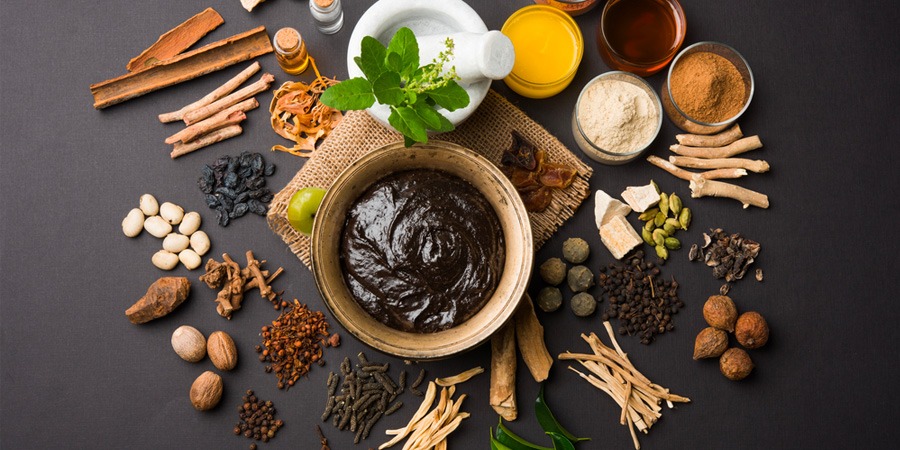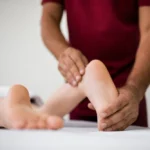The word Ayurveda is popular across the globe; some people cite ‘Ayurveda’ inappropriately over ‘social media and internet remedies’. Disappointingly, most of such claims have no reference in Ayurveda. Authentic Ayurveda is based on the 3 treatises – Charaka Samhita; Susruta Samhita and Ashtanga Hrudaya which are considered as the Bibles of Ayurveda. Several Sanskrit citations of these books are wrongly deciphered while translating in English.
Myth 1: Ayurveda means oil massages.
Fact: Ayurveda massages and oil therapies are only a supplemental aspect of Ayurveda. Ayurveda is a well-developed medical system having specialties like – General Medicine, Pediatrics, Psychology and Psychiatry, ENT and Ophthalmology, Surgery, Toxicology, Science of Nutrition, Reproductive medicine.
Myth 2: Ayurveda means strict vegetarianism.
Fact: Ayurveda permits the daily consumption of meat from arid lands (jangala mamsa; example: mutton, rabbit) as food. Several Ayurveda medicines also contain animal products.
Myth 3: Ayurvedic medicines do not have any side effects.
Fact: Ayurvedic medicines may be less harmful than other medicines due to the herbal ingredients; there still may be some side effects. An experienced Ayurveda practitioner tries to prescribe medicines which might have positive side benefits than negative side effects.
Myth 4: Ayurvedic treatment takes longer time to work.
Fact: There is no instant cure for chronic ailments. Ayurveda can cure a simple muscular pain faster; while the treatment of knee arthritis or diabetes mellitus require long term medicines.
Myth 5: An Ayurveda doctor understand all our health issues through Pulse diagnosis.
Fact: The classical books of Ayurveda does not give much weightage to Nadi pariksha (pulse diagnosis). A diagnosis in Ayurveda must be made through, interrogation, inspection, and palpation. An expert Ayurveda physician also use modern investigation tools for diagnosis.
Myth 6: Body type analysis is the diagnosis in an Ayurveda consultation.
Fact: A physician cannot assess Body type (prakruthy) in a single consultation; it can be evaluated only after repeated interaction with the patient; also, after taking inputs from family members. The priority of an Ayurveda physician while treating a disease, is to assess the pathology of the disease (vikruthy of Vata-Pitta-Kapha).
Myth 7: While taking Ayurveda treatment, pain in arthritis or itching in an eczema or wheezing in an Asthmatic; aggravate before healing!
Fact: Aggravation of such symptoms should not happen in Ayurveda treatment. In such cases, one should, without delay, report to your Ayurveda practitioner.
Myth 8: All Ayurveda medicines are heat generating on body.
Fact: Ayurveda use warm potency medicines for Vata & Kapha imbalance; while cold potency medicines are used for Pitta imbalance.
Myth 9: Daily application of oil on the scalp and body is good for health as per Ayurveda.
Fact: Ayurveda recommends oil application in healthy individuals and in Vata diseases. Ayurveda contra-indicate oil applications in Kapha & Pitta conditions. Conditions like Allergic rhinitis and Seborrheic eczema worsen with oil applications.
Myth 10: One should avoid certain foods while taking Ayurveda medicines.
Fact: An Ayurveda doctor suggests to avoid certain foods based on the health condition. Example; Ayurveda say NO to curd in skin diseases; while Ayurveda advises curd intake in Vata sleep issue. Only very few drugs have medicine-specific dos & don’ts.
Myth 11: Jaggery, millets, lotus are good foods as per Ayurveda
Fact: Ayurveda forbids the routine use of jaggery, millets, lotus rhizomes, sweet dairy products, curds, yoghurt, paneer, alkaline foods, fermented foods, uncooked radish, dry meat, sheep-cow-buffalo meat, fish, urud dal, flat beans, powdery & starchy foods, sprouts, dried vegetables.
Myth 12: Daily consumption of Neem is good as per Ayurveda
Fact: Neem is neither a food nor a tonic for daily consumption. While it balances Pitta & Kapha, Neem imbalances Vata. I have witnessed several diabetic patients turn out to be diabetic neuropathy cases, due to daily consumption of neem.
Myth 13: Herbal Ayurveda medicines are added with heavy metals which damages liver and kidney.
Fact: None adds minerals and metals in to an Herbal and Herbo-Animal compounds of Ayurveda. Plants absorb certain minerals and metals from the soil which may be discovered in a laboratory analysis. Now a days, high levels of such metals are found in rice, wheat, potato and in carrots too.
Myth 14: One must repeat Ayurveda treatments in the consecutive years.
Fact: There are no such mandates in Ayurveda to repeat the treatments in consecutive years. However, chronic diseases require repeated and consistent care.







